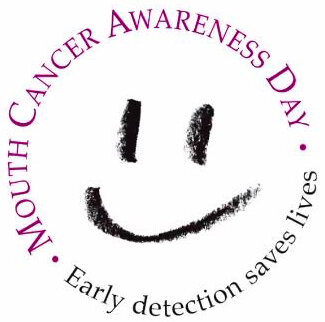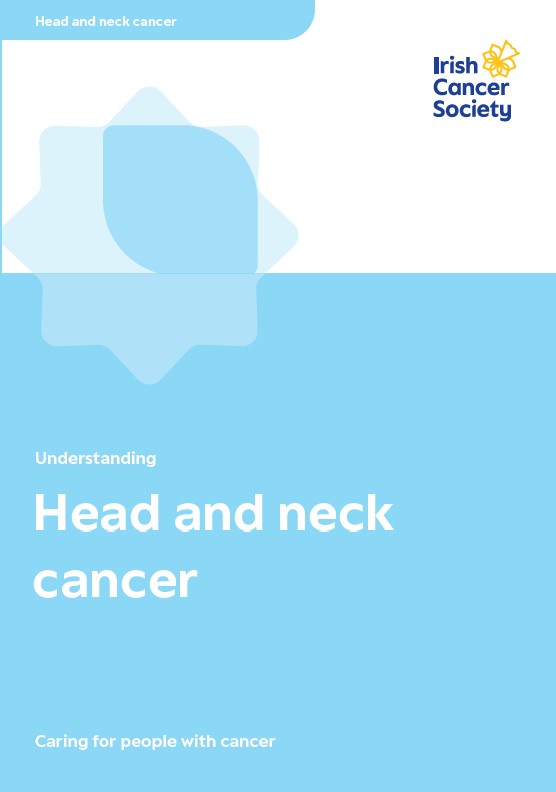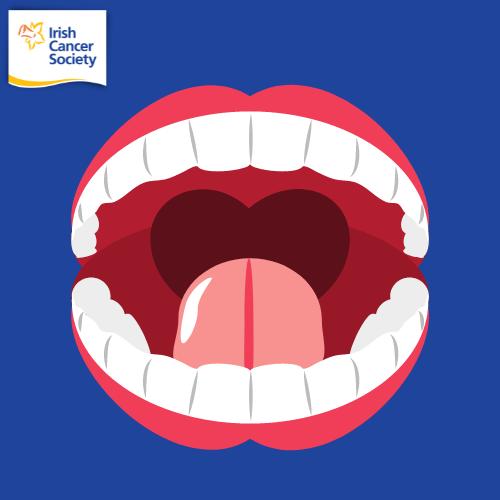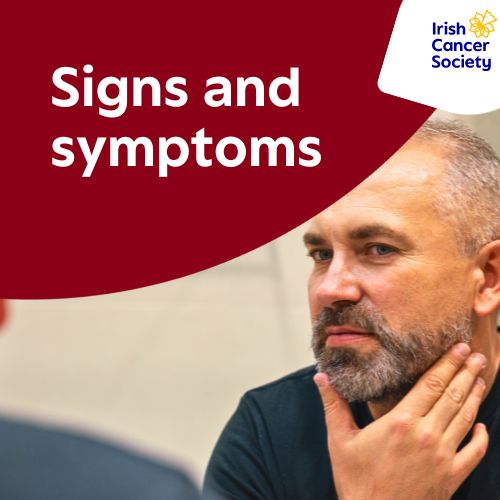Mouth, head and neck cancer
Mouth, head and neck cancers affect over 760 people in Ireland each year.*
They include all cancers affecting the organs and tissues of the mouth, head or neck.
Signs and symptoms
Learn about the signs and symptoms of mouth, head and neck cancer. You are more likely to survive cancer if you find it at an earlier stage.
Treatments
There are a number of different treatments available for mouth, head and neck cancer. Your medical team will explain the best treatment options for you.
What is mouth, head and neck cancer?
Mouth, head and neck cancer describes different cancers that happen in the organs and tissues of the mouth, head or neck.
This includes oral cancers, such as cancer of the tongue, gums, cheeks and roof of your mouth (hard palate), as well as cancers of the throat, nose, sinuses, salivary glands, middle ear and larynx.
Cancer starts when cells grow in an abnormal way. As they grow, the cancer cells can form a tumour, which can affect how the organ or tissue normally works.
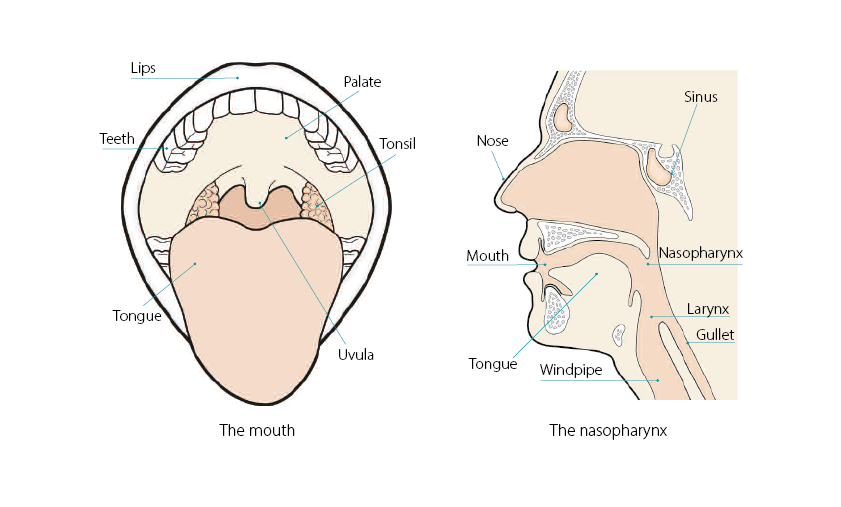
Where can mouth, head and neck cancer happen?
There are many areas of the mouth, head and neck where cancer can occur and includes:
- Oral cavity (mouth) and oropharnygeal cancer
- Laryngeal (voice box) cancer
- Nasopharyngeal cancer
- Salivary gland cancer. This is rare. Lumps in the salivary gland are common and usually harmless, but get any lumps checked out.
- Nasal and paranasal sinus cancer
- Cancer of the base of tongue and tonsils
- Upper oesphageal (food pipe) cancer
- Cancer of the head and neck lymph nodes - either as primary disease (lymphoma) or as secondary spread of other tumours
- Cancer involving the base of the skull
- Cancer of the ear: This is rare.
- Cancer of the eye: This is very rare.
- Cancer of the thyroid: The thyroid gland is in the front of your neck above your voice box.
Over 760 people are diagnosed with these cancers every year in Ireland.*
Describing mouth, head and neck cancers
The different mouth, head and neck cancers are named after the type of cell where the cancer first started to grow. For example:
Cancers that start in the squamous cells lining your mouth, nose, throat, tongue or ear. Most head and neck cancers are squamous cell cancers.
Cancers that start in the cells of the lymphatic system cells and travel to areas of your head and neck.
Cancers that grow in muscle, cartilage, bone and blood vessels around your head and neck.
Cancers that grow in the pigment cells that give colour to your skin and eyes. They can also start in the cells that line your mouth and nose.
The Irish Head and Neck Society has produced a helpful series of videos on the many different healthcare professionals who could be involved in your care if you are diagnosed with a head and neck cancer.
Click the button below to watch on their website.
Risks and prevention of mouth head and neck cancer
These risk factors can increase your chance of developing mouth, head and neck cancer:
- Smoking: If you smoke, you are more at risk of developing cancer of the mouth, tonsil, throat, larynx or lung. Pipe smokers have an increased risk of lip cancer. If you chew tobacco, you have a higher risk of developing mouth cancers. All types of tobacco use increase your risk of mouth, head and neck cancer. There is no safe use of tobacco.
- Age: Your risk increases as you get older. While these cancers are more common in people over 50 years of age, they are increasing in people under 50.
- Gender: These cancers are more common in men than women, but rates in women are rising.
- Alcohol: If you drink a lot of alcohol (more than 10 standard drinks per week), particularly spirits, you are much more likely to develop a head and neck cancer. If you smoke and drink alcohol, the risk is even higher.
- Human Papilloma Virus (HPV) infection: HPV can increase the risk of cancers in the tongue, tonsil, soft palate and throat.
- Sun exposure: UV rays increase your risk of cancer of the ear, nose and lip.
- Exposure to chemicals and dusts in the workplace: This is linked to throat cancer.
Having a risk factor doesn’t mean you will get cancer. Sometimes people with no risk factors get cancer. If you’re worried, talk to your GP or to one of our cancer nurses on the Support Line 1800 200 700 or visit a Daffodil Centre.
Reducing your risk of mouth, head and neck cancer
The most important things you can do to reduce your risk of mouth, head and neck cancer are to:
- Stop smoking
- Stay within the low-risk alcohol guidelines (11 standard drinks for women per week, 17 for men)
- Protect your skin from the sun with suncream and a lipbalm with sunblock
- Go for regular check-ups with your dentist
Medical content updated from our 'Understanding head and neck cancers' booklet (2025), reviewed by Prof James Paul O’Neill, Professor of Otolaryngology, Head and Neck Surgery; Emma Devoy Flood, Head and Neck Surgical Oncology Clinical Nurse Specialist; Fiona Young, Daffodil Centre Nurse.
Continue reading about mouth, head and neck cancer
Publications about mouth, head and neck cancer
Talk to a Cancer Nurse

Support Line
Our Daffodil Centres

*The Irish Cancer Society uses the most up-to-date cancer statistics from the National Cancer Registry Ireland, available on www.ncri.ie
